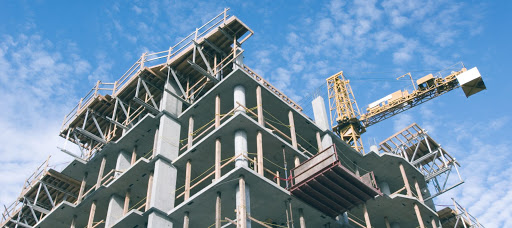Financing a Pre-Construction Condo
Buying a pre-construction condo – a unit that has not yet been built – is not as easy as buying a resale unit. However, it gives you the opportunity to tailor your home to your tastes and live in a property that’s in mint condition. Here are some of the things that buyers should be aware of:
Thinking of buying a condo? If you work long hours, or you just don’t want to handle maintaining a property, a condo may be right for you.
As if it isn’t hard enough to choose between buying a condo and a detached house, once you choose the former you’re confronted with another difficult decision – whether to a pre-construction or resale unit.
The Advantages of Buying New
The main advantage of purchasing a new condominium unit rather than a resale unit is that it gives the buyer the opportunity to customize the home to his or her liking. The buying process for a pre-construction unit, however, differs significantly from the resale. Most buyers need to finance their property. If you’re going to apply for a mortgage, here are some of the things you should know before signing on the dotted line.
You’ll Need a Bigger Down Payment
You can’t just pay the minimum 5% deposit on a pre-construction condo. Concept projects usually require much heftier deposits than resale units. Some builders actually demand as much as 25% down payment – ouch! As an example, you’ll have to come up with $75,000 before the date of occupancy if you’re buying a new condo for $300,000. You have the option of negotiating with the builder to make a smaller down payment if the price is out of your budget. If you’re not successful you may have to consider another project.
Fortunately, you won’t have to settle the down payment all at once: it’s usually broken up in smaller installments. Buyers usually pay 5% of their offer and make additional deposits of 5% at the 30, 90, and 180-day marks, and at the date of occupancy officially begins. Each builder will have his or her own deposit structure.
Understanding the Cooling Off Period
It’s natural to have second thoughts since your condo is a major purchase. You have a short period in which you can back out with no penalty if you sign the papers and decide not to go through with the purchase.
Cooling off periods varies by location. If you live in British Columbia, for example, you can change your mind within seven days, while in Ontario you’ll get 10 days. We recommend you have a real estate attorney review your offer during this period. You can also use the cooling-off period to finalize financing with your lender of choice.
Be Ready for Closing Costs
You should include closing costs in your budget when purchasing a new condominium, just as you would if you were buying a resale unit. Closing costs can be very expensive and usually range between 1.5% and 4% of the purchase price to pay for expenses such as real estate attorney fees, inspection costs, and land transfer tax. You’ll typically also have to come up with installation fees for gas and water meters, and for education and development charges. Since these charges can reach well into the thousands, it’s important to get a ballpark figure from your builder upfront.
Occupancy and Closing Dates
As a buyer, you should know the difference between the closing and the occupancy dates if you’re purchasing a new condo. After the closing date, you can officially consider your condo “home, sweet home.” The closing and occupancy dates are almost always different when you’re buying new – the occupancy date usually comes first, while the closing date can be anywhere between three and six months. The closing date can occur only after the project is finished.
What is Phantom Rent?
You should be aware that even if you choose to move in from the occupancy date, you would not be considered the lawful owner until the closing date. You will pay a fee known as “phantom rent” to your builder. Your mortgage payments will start after the closing date, after you cross the Ts and dot the Is and you become the owner on record. This “phantom rent” does not count toward your mortgage, since it is an occupancy fee levied by your builder.
In Conclusion
We’ve shown you how purchasing a new condominium unit differs significantly from buying a resale unit. Ensure you have financing in place if you buy new, and be prepared to wait a few months – or, in some cases, for your closing date.






